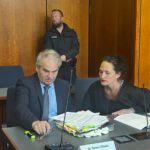
Magic in the Fuellmich case
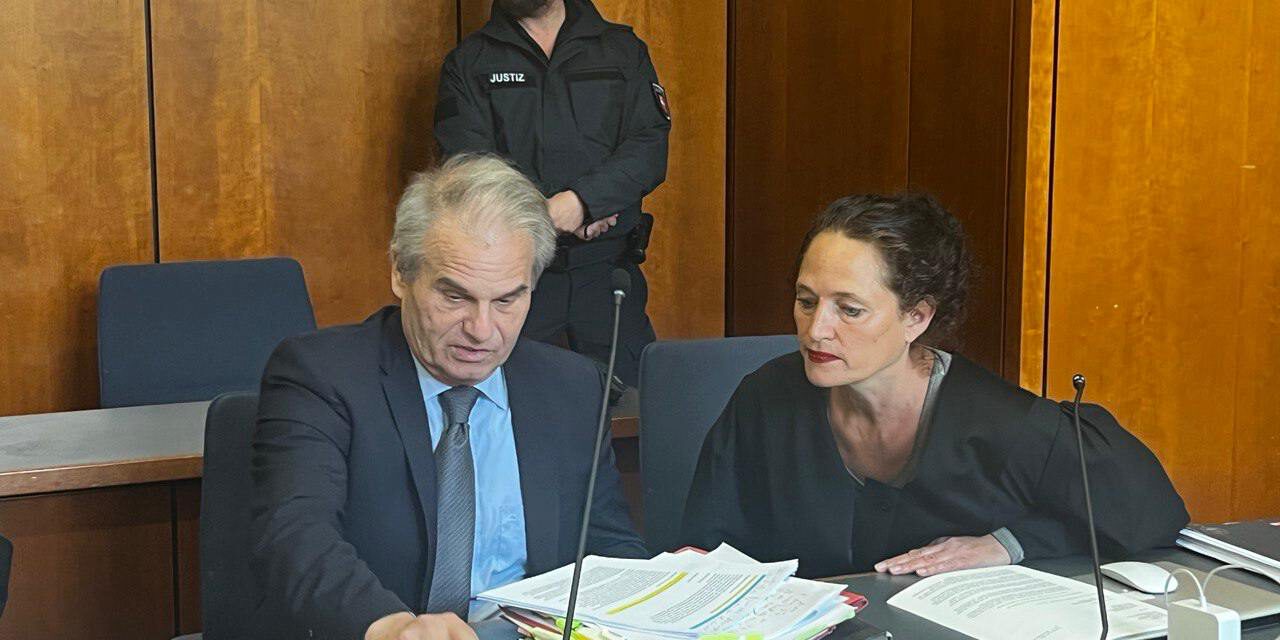
Prison denies torture, court denies contracts
On the 38th day of the trial against civil rights activist Dr Reiner Fuellmich, the legal madness took its course. We witnessed a prison justifying its torture and a court sabotaging the defence of the persecuted man. The need for explanations allows the prison to conjure up untruths and the court to trickily conjure up loan agreements. The cheap tricks pave the way for slander and the desired conviction.
In the Rosdorf torture prison, where Dr Fuellmich is being held, they are not squeamish: isolation, violence against prisoners, refusal of medical help, refusal of requests for protection from vulnerable and abused inmates are apparently the order of the day here. Detainees on remand and convicts are illegally deprived of their human rights, tortured and psychologically damaged.
The prison did not respond to the allegations of torture in any detail. Above all, it is clear from their statement that the prison is not pleased that Dr Füllmich – a fully qualified lawyer with the qualification to hold the office of judge – is giving his fellow prisoners legal advice. The legitimate concern of abused prisoners for a legal remedy against the abuses committed by prison staff and fellow prisoners is sanctioned in the Rosdorf torture prison; Fuellmich is isolated and harassed. Anyone who seeks contact with him – even if it is by waving out of the window into the yard – is also punished.
The prisoners are completely dependent on the mercy of the prison staff. They are deprived of their fundamental human rights – which is illegal in every respect. Peter-Alexis Albrecht, lawyer, social scientist and Professor of Criminology and Criminal Law at Goethe University Frankfurt am Main, comments:
Human rights also apply to prisoners
‘The guarantee of human rights in criminal law and the penal system is not at the discretion of the legislator. They are not arbitrary instruments in the hands of the judiciary that can be used to influence, punish or reward prisoners because society is to be protected from recidivism. Central human rights must be guaranteed by the state for their own sake.
They are based on the anthropological realisation that all people – free or imprisoned – are endowed with equal rights simply because they are human. The highest principle of human rights is human dignity. It has been fought for before the law, is thus predetermined by the legislator and is unavailable, no matter what injustice has been done.’
Neither the court nor the prison are interested in human rights. Brutal shackling, degrading searches, poor or little food and prolonged isolation are apparently intended to break the civil rights activist Dr Fuellmich. The court’s flaunted certainty of his conviction is also a remarkable act: during the 38 days of the trial, it did everything it could to deny the defendant his rights, sabotage the investigation of the facts and reject exculpatory witnesses and evidence. At the same time, it changed the accusation of guilt – in deviation from the accusations in the original criminal complaint – during the course of the proceedings. The court constructed a possibility of conviction in order to ensure that the civil rights activist could still be convicted somehow.
The 38th day of the trial – in the light of the previous conviction
Trial day no. 38 in the criminal case against Dr Reiner Fuellmich on 14 November 2024 was also a memorable day for the judiciary. The trial began at a quarter to ten. Katja Woermer, lawyer, was present as defence counsel. Her colleague Tobias Pohl arrived later – after all. The two other ‘defence lawyers’ once again did not appear at all. The absence is systematic.
As a result, Katja Woermer had no choice but to stand the entire trial day alone. She did so at the beginning of her plea. Among other things, she read out various documents as part of her plea.
The inhumane prison conditions and permanent degradation of the persecuted man were also addressed. Lawyer Woermer read out excerpts from a study according to which psychological reprisals during imprisonment – such as isolation, shackling or repeated humiliating undressing, restriction or prohibition of physical activities and lack of or poor food, etc. – can also lead to a similar situation as physical reprisals. – can lead to a similar situation to physical torture. These actions by prison officers are recognised as psychological torture and are subjectively perceived as equally stressful by those affected.
Lawyer Woermer read out a statement from the prison, which was not only obviously full of untruths, but was also clearly written with the intention of belittling the person being persecuted. Reiner Fuellmich disputes the statements in the prison’s list – for example, he did not have any affidavits signed by other prisoners in June and July 2024 (it is also questionable for what purpose and with what content).
It is significant that the prison management took Dr Reiner Fuellmich’s criticism of the coronavirus measures as the starting point for its statement in order to talk about an increasing ‘radicalisation’ of Reiner Fuellmich based on this. In addition, she accused Reiner Füllmich of manipulation against the deputy head of the pre-trial detention centre, as well as overall ‘behaviour detrimental to the prison’ or ‘objectives detrimental to the prison’. What exactly this is supposed to mean is not clear from the confused statements.
The torture prison resents criticism and sanctions Fuellmich and other prisoners
It goes without saying that inmates in such an inhumanely run prison are unlikely to feel particularly comfortable. And it is also understandable that prisoners want to defend themselves against mistreatment and demand their rights. If a fully qualified lawyer then counsels the prison victims in prison, this is of course a reason to isolate these people and put them under even more psychological pressure.
At the end of the day, it’s not about small things. If the prison tolerates mistreatment, rejects justified requests for help, refuses medical treatment and degrades prisoners, then these are acts that are justiciable. Human rights organisations around the world are taking notice of Füllmich’s case. In recent weeks, reports of similar conditions have emerged from more and more prisons. However, the intensive white torture to which Fuellmich is being subjected is apparently unique at present.
Trial routine: After the lunch break, further documents were read out. Lawyer Woermer also pointed out that there had obviously been further defamation of the defence on the internet, including by the adhesion plaintiff Justus Hoffmann and his co-accused in the present case.
She also read out an article from the online magazine HNA about a local notary and lawyer in Goettingen who had apparently tried to sell at least one very high-priced property in Goettingen’s eastern district, an extremely upmarket residential area, to his father-in-law instead of selling this property on the open market to a third party at the usual market price. This was very reminiscent of the coup with which Marcel Templin, with the help of a notary, took the full proceeds of the Füllmich property, making it impossible for Füllmich to repay his loans.
But unlike in the case of Reiner Fuellmich, the other shoddy property deal was prosecuted and the notary penalised. The file number or the file was requested by Woermer.
Ms Woermer also addressed the discriminatory reporting by the system media on the Reiner Füllmich case. Almost nowhere is the facts of the case assessed. Instead, the civil rights activist is only labelled with defamatory terms such as lateral thinker, corona denier, etc. Just contemporary propaganda.
The details of the transport torture were also discussed: Füllmich and Woermer pointed out that the handcuffs with a black rubber coating, which can be seen in court, do not correspond to the usual shackling in the prison and on transport to court. In the prison, shackles made of bare steel are used, as well as handcuffs made of pure metal with unpolished corners that cut very painfully into the wrists.
In addition, these handcuffs from Rosdorf Prison are additionally secured to an eyelet in front of the defendant’s upper body with a waist belt so that, together with the ankle cuffs, he is completely unable to move, can only walk in small steps and could not protect himself in any way from injury if he stumbled or was in danger of falling.
Lawyer Woermer read out the court’s decision to continue his imprisonment from August of this year, from which it can be seen that Reiner Fuellmich has actually been deprived of any defence position in the ongoing criminal proceedings. The verdict had been finalised long ago. The accusation of guilt is already linked to the transfer of the loan amounts to Rainer Füllmich’s private account or his wife’s private account. All of the defendant’s repayment efforts, or the prospect of repaying the two loans by selling his house, are only described in the decision as relevant for the sentencing or mitigating the sentence. Even if repayment had been made or the prospect of repayment had been held out through the sale of the property at the time, this would not have led to exemption from punishment or the omission of the fulfilment of the offence – according to the court’s constructed basis for sentencing.
Interestingly, the chamber thus takes the same legal view as the public prosecutor’s office. Public prosecutor Jon had already made a brief plea several weeks ago and in his plea had in no way taken into account the hearing of evidence that had taken place in the form of the examination of various witnesses. The trick was quite simple: Fuellmich had explained that he had had the loan amounts for which there were loan agreements transferred to his accounts.
Magic: loan agreements agreed between three fully qualified lawyers conjured away by the court
The public prosecutor’s office and the court unanimously constructed that the loan agreements, which were concluded by lawyer Fuellmich and lawyer Viviane Fischer with the assistance of lawyer Weissenborn and had also been implemented as loan agreements, were not loan agreements at all. What smells and looks like a violation of the law here has consequences: If the public prosecutor’s office and the court jointly refuse to recognise the concluded loan agreements, they have what they need: they can try to construct an embezzlement according to 266 StGB on this basis – which they have now done. As a reminder: the public prosecutor’s office had demanded a prison sentence of three years and nine months while maintaining the arrest warrant.
The district court and the responsible criminal division have also repeatedly confirmed the upholding of the arrest warrant in the numerous decisions to continue detention – partly due to the high prison sentence to be expected. If it weren’t so bitter: the public prosecutor’s office and the court can demand a horrendous penalty by simply wiping out the existing contracts with a wave of the hand and justify the upholding of the arrest warrant on this basis.
Lawyer Woermer therefore also read out a lengthy statement from the defence, in which she explained that in this case it was only ever about loan agreements. It is indeed undisputed that there are loan agreements. These have all the elements of a valid contract. They were signed by Rainer Fuellmich and Viviane Fischer on a reciprocal basis for the respective loans granted.
All of the loan agreements contained an obligation to repay. Viviane Fischer had also repaid her loan in several instalments in the period from summer to autumn, specifically at the end of October 2022. Reiner Fuellmich had always referred to the repayment of the loan amounts as part of the sale of his Goettingen property during the talks and during the numerous mediation meetings, as well as in emails, public broadcasts and other interviews.
What did the public prosecutor’s office do in the Templin case?
The purchase agreement for the property was concluded on 3 October 2022. The property was officially unencumbered according to the land register at the time. It was only over a month later that Marcel Templin had the land charge registered, which had been assigned to him at the beginning of 2021, in the name of the plaintiff association ‘ClassAction’.
Interestingly, Marcel Templin hardly had any clients from the ‘ClassAction’ at the time. By August 2022, the vast majority of the ‘ClassAction’ group of plaintiffs had migrated directly to the law firm Fuellmich and had commissioned it directly to represent their interests. Hardly any of the plaintiffs had an interest in being represented by Templin.
In the course of the sale of the German Füllmich property, Marcel Templin had apparently very trickily extracted an amount of 1.158 million euros from the house, far in excess of the loan amount of 600,000 euros at the time. He did not transfer this money, the whereabouts of which are still unknown, to the Corona Committee’s holding company. Nor did he return the 700,000 euros to his two law firm colleagues who had filed the charges against Reiner Fuellmich together with him and who are acting as plaintiffs in the present criminal proceedings.
Absurd: And this despite the fact that the regional court had also repeatedly conceded in various rulings that it must be assumed that Marcel Templin was not legally entitled to at least an amount of 700,000 euros from the sale of the house.
If the property had been sold, Reiner Fuellmich would have been able to repay the loan amounts without any problems and as planned. The Chamber also assumes this to be the case. However, the Chamber also stated that Reiner Fuellmich had allegedly not been willing to repay the Corona Committee „Vorschaltgesellschaft“ since autumn or the end of 2021. It remains a mystery why the regional court made this legal assessment. The only possible starting point here is the disputes between the shareholders. Viviane Fischer and Reiner Fuellmich were always on one side, while the two plaintiffs in the action for damages, Antonia Fischer and Justus Hoffmann, were on the other.
Using these disputes of a corporate law nature and the dispute or division of the parties that was also sought at the time to feign a lack of willingness to repay on the part of Reiner Füllmich is another trick used by the court on the way to the conviction. In a written submission to the application for the examination of the detention at that time dated 29.11.23, the defence had also already declared the assignment of the claim against Reiner Fuellmich in the amount of the repayment of the loans and assigned the claim against Marcel Templin to the „Vorschaltgesellschaft“.
Why are Fuellmich’s pursuers not claiming the money from Templin?
To date, the two plaintiffs in the adhesion proceedings and the only remaining managing directors of the company – Antonia Fischer and Justus Hoffmann – have not reacted to this assignment at any time. This alone could possibly be seen as disloyal behaviour, as it should be extremely easy from a practical point of view to manage an assignment and therefore transfer of the money in the amount of the loan of over 700,000 euros between the three colleagues from the law firm ‘Die Hafenanwaelte’, Marcel Templin, Antonia Fischer and Justus Hoffmann. In this respect, it is to be hoped that the money from the house sale is still in the account of lawyer Marcel Templin and has not already flowed elsewhere or been spent.
A criminal complaint was also filed by and on behalf of Reiner Fuellmich at the beginning of December 2023 against the lawyer Marcel Templin, as it can be assumed that Marcel Templin acquired the money without legal grounds. He would therefore at least have been obliged to immediately repay or forward the money to Reiner Fuellmich, or in this case to the upstream company due to the assignment. It is not known whether the public prosecutor’s office in Göttingen has initiated any investigations into this matter to date and has endeavoured to clarify the facts in this respect.
The chairman finally closed the hearing at half past three as usual and referred to the next continuation date on 25 November 2024
This report is based on the transcripts of the hearing by lawyer Katja Woermer, supplemented by her own research into individual factual and legal issues.
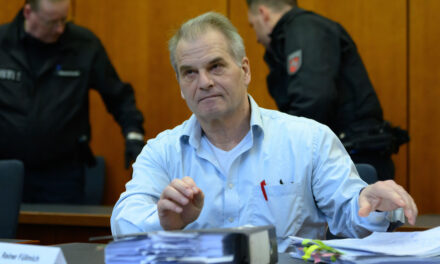




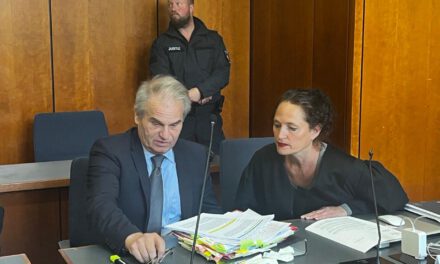
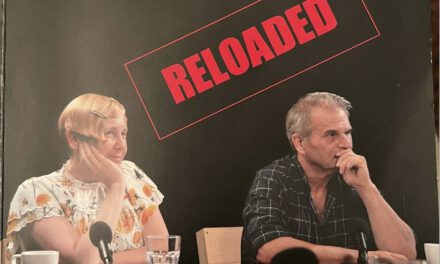


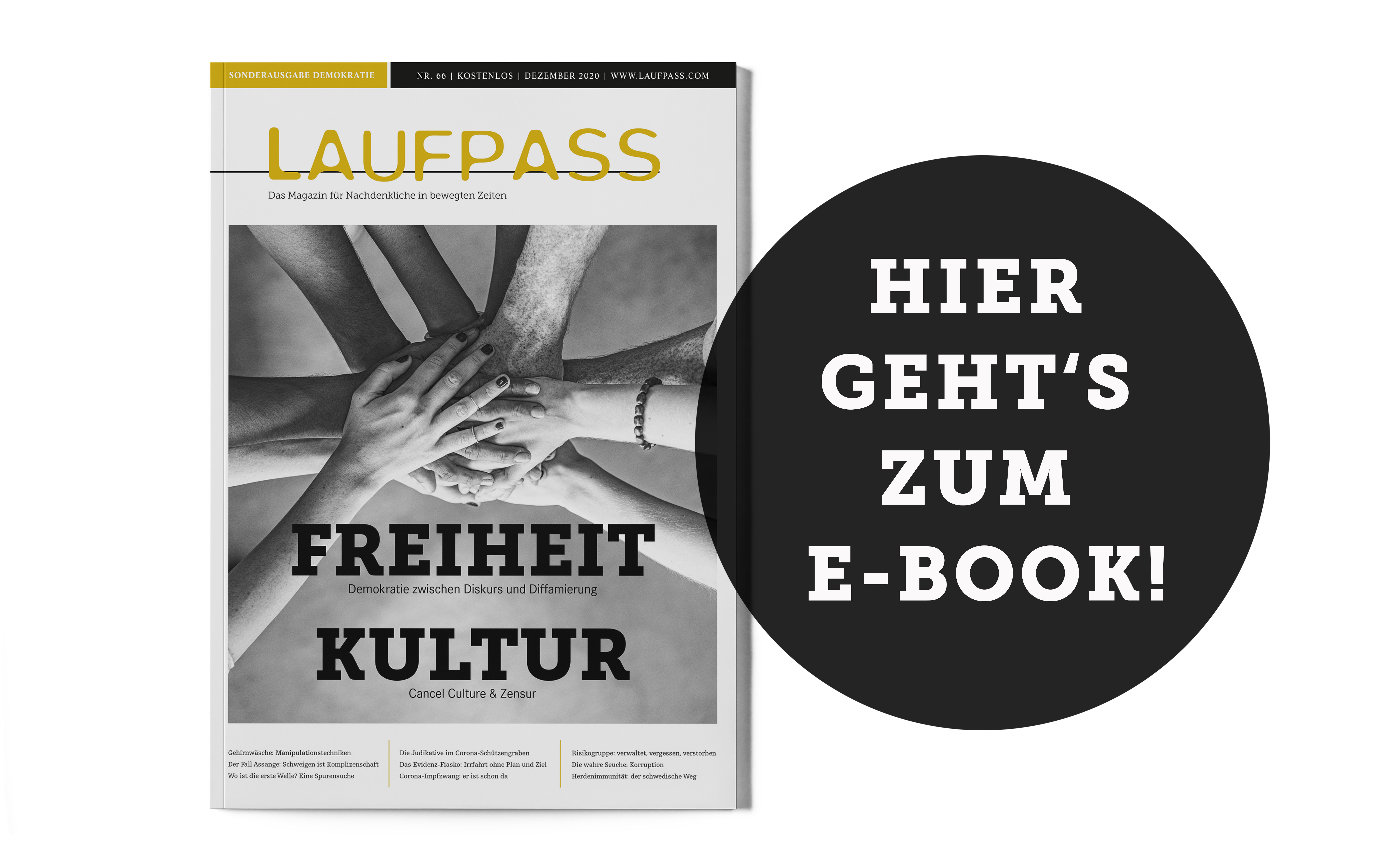





Wir wissen schon lange dass Reiner unschuldig is. Please make this available in FRENCH as well, they need to know, and so does the whole world! Zeit das er rauss kommt bevor er vergifted wird wie Christophe Chalençon last month. HURRY!
https://laufpass.com/wissenschaft/magie-dans-laffaire-fuellmich/